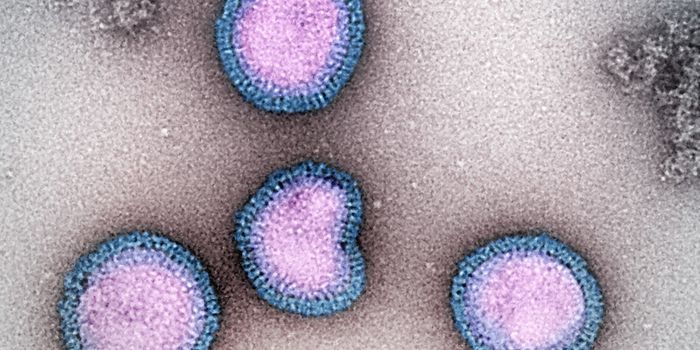Measles Cases are Soaring Around the World
Measles is probably the most infectious disease that affects humans. It's estimated that nine of ten unvaccinated people who are exposed to the virus will be infected. The illness can cause a rash, runny nose, or cough, and in some cases the disease is severe enough to be fatal. Children usually get two shots of the measles vaccine (as a part of the MMR vaccine) at nine months, and then again between fifteen and eighteen months of age. A community is considered protected from outbreaks when over 95 percent of its members are vaccinated. This is particularly important for infants that are too young to be vaccinated and immunocompromised individuals.
There was a dramatic rise in the number of measles cases confirmed in the World Health Organization's (WHO) European region in 2023; rates spiked in 2023, and the 42,200 cases represented nearly a 45-fold increase compared to 2022, when only 941 cases were reported. The highest numbers were in Russia and Kazakhstan, which each had about 10,000 cases.
The pandemic is known to have caused a huge disruption in vaccination campaigns. It's estimated that from 2020 and 2022, about 1.8 million infants in the 53 countries that are part of the WHO Europe region were not vaccinated for measles. Globally, more than 61 million vaccine doses that could have protected against measles were postponed or missed from 2020 to 2022, according to the Centers for Disease Control and Prevention (CDC).
"It is often thought that measles just gives people a fever and a rash which will clear up after a week or so. However, complications can be incredibly severe with this virus, especially in more vulnerable groups of the population like children and pregnant women as well as those who are immunosuppressed," noted Dr. Sophie Martucci, ap public health expert at the University of Warwick. "It is calculated that one person with measles could infect twelve to eighteen other people, just highlighting how far this virus can potentially spread should precautions not be taken."
The United Nations, WHO, CDC, UNICEF, American Medical Association, and American Nurses Association have all recently stressed the importance of vaccination.
The problem is also happening in the United States, and the CDC is warning clinicians to be on alert for signs of measles in their patients. There was recently an outbreak of measles in Philadelphia. In that event, at least eight people were hospitalized with measles. All eight of these cases were in unvaccinated individuals, according to a public health official. The city reports a vaccination rate of 93 percent. We're just a few weeks into 2024, and already, there have been nine cases of measles in Georgia, Missouri, New Jersey, and Pennsylvania, according to the CDC.
Outbreaks of measles are also occurring in Australia, India, and Pakistan. In 2019, there was a massive measles outbreak on the Pacific Island nation of Samoa. There were 5,667 confirmed infections within four months and 81 people died. Many of the deaths occurred in young children. Yemen and Ethiopia, which have also been recently affected by regional conflicts, have also recently seen high numbers of measles cases.
The CDC reminds travelers that measles can move all over the world, and can enter the US from virtually any country.
Sources: Medical Express via AFP, University of Warwick









